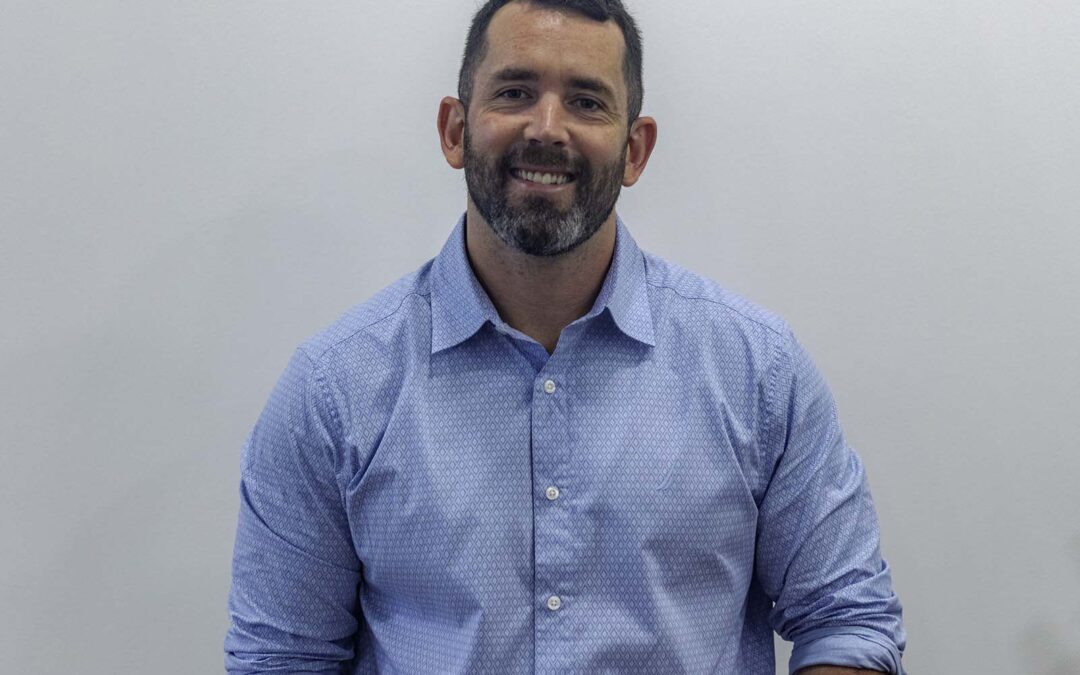Will My Boss Find Out If I Go to Drug Rehab?
Understanding Confidentiality in Drug Rehab
When you enter drug rehab, your privacy is protected by some of the strongest confidentiality laws in healthcare. Think of these protections as a shield around your personal information—they’re designed specifically to help you seek treatment without fear of exposure.
HIPAA (Health Insurance Portability and Accountability Act) forms the foundation of medical privacy in the United States. This federal law prevents healthcare providers, including addiction treatment centers, from sharing your medical information without your written permission. For substance use disorder treatment, there’s an additional layer of protection called 42 CFR Part 2, which provides even stricter safeguards than standard HIPAA regulations.
Here’s what this means for your employment situation:
- Your employer may know you’re taking medical leave
- They cannot access details about your diagnosis, treatment plan, or the fact that you’re attending drug rehab
- Treatment centers cannot confirm or deny your presence without your explicit consent
- Your drug rehab privacy remains intact unless you choose to share information
These protections exist so you can focus on healing without worrying about professional repercussions.
If you’re struggling with anxiety or sleep problems as part of your substance use disorder, remember that there are effective alternatives to sedative drugs available. These alternatives include natural remedies and lifestyle changes that can aid in your recovery process while respecting your confidentiality.
Legal Protections for Employees Seeking Drug Rehab
Federal laws provide substantial employee rights when seeking treatment for substance use disorders. The Family and Medical Leave Act (FMLA) entitles eligible employees to take up to 12 weeks of unpaid, job-protected leave annually for medical treatment, including drug rehab. This drug rehab leave protection applies to companies with 50 or more employees, allowing you to focus on recovery without losing your position.
The Americans with Disabilities Act (ADA) offers additional safeguards by prohibiting discrimination against individuals with a history of addiction who are in recovery or have completed treatment. Your employer cannot fire, demote, or refuse to hire you based solely on your participation in a drug rehab program or past substance use disorder.
These protections work together to create a safety net during one of life’s most challenging transitions. While FMLA ensures your job remains available during treatment, the ADA shields you from unfair treatment when you return. Many people worry about career consequences when considering rehab, but these federal laws exist specifically to remove that barrier to getting help.
What Employers Can and Cannot Know About Your Drug Rehab Treatment
Navigating the balance between medical leave justification and maintaining your privacy can feel tricky, but understanding employer disclosure limits helps you protect your personal information.
When requesting FMLA leave, your employer can ask for certification from a healthcare provider confirming that you need time off for a serious health condition. This documentation should verify:
- The approximate dates treatment will occur
- The expected duration of your absence
- A statement that you have a serious health condition requiring leave
What they cannot request includes your specific diagnosis, details about your treatment plan, or information about which facility you’re attending. You’re not required to mention that you’re seeking substance use disorder treatment—a simple certification stating you need medical leave is sufficient.
Many employees choose to provide minimal information, such as “I need medical leave for a health condition” or “I’m undergoing treatment recommended by my physician.” This approach respects privacy boundaries while fulfilling your employer’s legitimate need to manage staffing and approve your leave request under FMLA guidelines.
Returning to Work After Drug Rehab: Your Rights and Support Options
Job reinstatement is a basic right protected under the Family and Medical Leave Act (FMLA). When you finish your drug rehab program, your employer must bring you back to your old job or a similar one with the same pay, benefits, and responsibilities. This protection ensures that your career path remains uninterrupted during your healing process.
Concerns about stigma or discrimination are valid, but workplace rights after rehab provide significant protection. The Americans with Disabilities Act (ADA) forbids employers from treating you differently because of your recovery status. If you experience discrimination, you can take legal action through the Equal Employment Opportunity Commission (EEOC).
Recovery support at work comes in many forms. Consider these approaches for maintaining your wellness while rebuilding your professional life:
- Establish boundaries around your personal time for therapy appointments and support group meetings
- Connect with your HR department about employee assistance programs (EAP) that may offer additional counseling resources
- Build a trusted support network among colleagues who respect your privacy
- Create a self-care routine that includes stress management techniques learned during treatment
Your recovery deserves the same commitment as your career. Both can thrive together with the right protections and support systems in place.

Outpatient vs. Inpatient Drug Rehab: Impact on Employment Privacy and Job Security
Choosing between treatment types involves weighing both your recovery needs and employment considerations. The flexibility of outpatient rehab allows you to maintain your regular work schedule while attending therapy sessions during evenings or weekends. This approach means fewer questions from colleagues about extended absences and greater control over what information you share at work. Explore how sober living and outpatient rehab work together to provide structure for lasting addiction recovery.
On the other hand, inpatient drug rehab leave requires taking time away from your job for intensive, residential treatment. While this option provides immersive healing in a structured environment, it typically involves requesting formal medical leave through FMLA. The time commitment ranges from 28 days to several months, depending on your treatment plan.
The privacy benefits of outpatient treatment include:
- Minimal disruption to your daily routine and work attendance
- Ability to frame any brief absences as personal appointments
- Reduced likelihood of workplace speculation about your whereabouts
- Continued income during treatment
Both paths offer effective recovery support. Centers like Insight Recovery Treatment Center provide comprehensive outpatient programs featuring individual therapy, group sessions, and evidence-based approaches like CBT—all designed to fit around your work commitments while maintaining your confidentiality.
How to Communicate with Your Employer About Drug Rehab Leave While Protecting Your Privacy
When you need to talk to your employer about taking time off for rehab, it’s important to remember that you have control over what information you share. You don’t have to go into detail about your diagnosis or treatment plan if you don’t want to. Instead, it’s best to keep things simple and professional.
Here’s how you can communicate effectively with your employer while still protecting your privacy:
- Be clear and concise: When explaining why you need time off, keep your message brief and to the point. For example, you can say something like, “I need to take medical leave for a health condition that requires treatment.”
- Know your rights: If you’re eligible for the Family and Medical Leave Act (FMLA), make sure to mention it in your conversation. This law provides legal protection for employees who need to take medical leave without requiring them to disclose specific details about their condition. Additionally, be aware of the Americans with Disabilities Act, which may also offer protections regarding your leave.
- Provide necessary documentation: Your employer may require documentation from your healthcare provider confirming the need for leave. However, this doesn’t mean you have to share all the details of your treatment plan. You can ask your doctor to provide a letter that states the dates you’ll be away from work and confirms that you’re receiving treatment, without going into specifics.
- Direct questions to HR: If your employer has any questions or concerns about your leave request, it’s best to direct them to your human resources (HR) department. HR personnel are trained in handling medical leave requests confidentially and should be able to address any issues that may arise.
Remember, it’s possible to maintain boundaries while still fulfilling your employer’s legitimate need to process your leave request. Focus on discussing practical matters such as when you’ll be gone, how long you expect to be away, and what plans you have in place for returning to work. By doing so, you’ll be able to navigate this conversation successfully without feeling pressured to disclose more than you’re comfortable with.
Supporting Your Recovery Journey Confidentially: Therapy Options and Aftercare Planning in Drug Rehab Programs
Your path to wellness doesn’t end when treatment begins—it’s supported by comprehensive, confidential care designed around your needs. Recovery support groups therapy options maintaining wellness in recovery work together to create a foundation for lasting change.
At Insight Recovery Treatment Center, you’ll find personalized approaches that respect your privacy:
- Individual counseling provides one-on-one support tailored to your unique situation
- Cognitive Behavioral Therapy (CBT) helps develop healthy coping strategies
- Group sessions connect you with others who understand your journey
- Behavioral therapy addresses underlying patterns affecting your recovery
Aftercare planning ensures you’re never alone after completing your program. Alumni groups, continued therapy sessions, and wellness activities create ongoing support without compromising your confidentiality. These long-term resources help you maintain the progress you’ve made while building a fulfilling life in recovery.
Your treatment information remains protected throughout every stage of care, allowing you to focus on healing without worrying about your privacy. If you’re struggling with specific issues such as prescription drug addiction, our Massachusetts-based center is equipped to help. Call us at (781) 653-6598 or reach out through our contact page to learn more about how we can support your confidential recovery journey.






